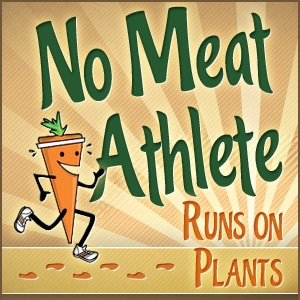There are plenty of different viewpoints in our world, as I'm sure you know. Unfortunately, this means that many people see animal rights in quite a different light than we animal-rights folk do.
When you look at the term "animal rights" you notice the word "rights", which applies to the rights given to the animals. This is similar to the way we use the term "human rights", for example. However, you could also look at the term "animal rights" the way you talk about "land rights". That is, you could interpret "animal rights" to mean the "right" for humans to use/abuse animals. This is potentially problematic!
Average individuals may feel this way about meat-eating, and certain hunter-gatherer cultures may also state that they have the right to use animals. Today, let's look at individuals' claims that humans in general have the right to eat meat:
On University of Guelph's Animal and Poultry Science website, there is a rant (
http://www.aps.uoguelph.ca/~swatland/rights.htm) about why humans should eat meat:
"...what gives me the right to eat beef? I claim the grandparent clause,
long-established habit and tradition. From my personal ancestors over the last
million years, I have inherited dentition and digestive enzymes ideally suited for meat-eating,
I have a predilection for juicy steak, and I lack the appropriate education to
devise for myself a perfectly healthy diet free of meat."
Basically, the author claims that he has the right to eat meat because of humanity's meat-eating ancestors, because he can, because he likes meat, and because he doesn't know how to follow a healthy meatless diet.
The "Because We Can" argument and the "Because I Like Meat" argument are particularly weak. There are many things that humans can do, like murder people and abuse their spouses, that we mostly collectively agree that we shouldn't do. What makes the exploitation of animals any different? Similarily, people may like to do harmful things, like raise roosters for cockfights or spread rumours about their friends, but that doesn't mean that they should have the "right" to do so.
The fact that the author lacks the education to go vegan should be a non-issue. Someone who supposedly works for a university should have little trouble accessing information on following a healthy vegan diet. (Just look to the books
Becoming Vegan or
Vegan for Life for reliable nutritional advice!) To me, this just seems to be an excuse more than anything else.
I saved the most important point for last: his argument that humans are naturally omnivorous creatures. This is the one that requires the most attention, since it appears to make sense at first glance.
Indeed, humans have typically eaten meat throughout our history. Humans
can eat meat, meaning that we may biologically be omnivores, and we need B12 in our diets, which does not come from plants. However, this does not mean that we need animal products in our diets!
I would guess that most people who claim that "meat eating is natural" participate in a lot of unnatural activities in their lives. Many people depend on the flu shot (although I think it's unnecessary!) and take multivitamins and supplements. Almost everyone uses computers, cell phones, electronics, microwaves, cars, etc. Is any of this "natural"? I'd say not! Some of it (like using cars) is actually unhealthy. So why would you target veg*nism as being the one "unnatural" thing that you shouldn't do, when vegan diets are actually usually very healthy, as long as they are supplemented with adaquate vitamin B12?
As humans, we have a choice. We can go through life following the guidelines set out for us by society, not really following our morals but instead doing what is easy. Or, we can make ethical decisions that most other animals are unable to make (due to their need for survival). (Some animals, of course, do have a sense of morality, too. However, they often have to set that aside when trying to survive in the wild, I think.) We can be grateful that we, as humans, have the ability to frequently choose compassion over competition.
In the article "Top 8 Arguments Against Animal Rights" on About.com (
http://animalrights.about.com/od/animalrights101/tp/ArgumentsAgainstAR.htm), argument #4 is "AR activists have a right to be vegan, and should respect my right to eat meat." The response to this in the article is the following:
"Eating meat infringes on the rights of the animals to live and be free, so animal rights activists do not believe that people have a moral right to eat animals.
Regarding legal rights, in the United States, eating meat is legal and our laws allow animals to be killed for food. However, AR activists cannot remain silent in the face of injustice and have a legal right to free speech that is protected by law. To expect AR activists to remain silent is failing to respect their right to express themselves and advocate veganism."
I believe that whether or not you have the "right" to consume products from animals is irrelevant. I believe it's more of a question of what is the most compassionate, ethical thing to do. And practicing kindness for all creatures while following a healthy vegan lifestyle is definitely more ethical than supporting the cruel exploitation of animals!
In Part II, we'll examine how animal rights relates to hunter-gatherer cultures that still exist today. Soon, I'll also probably do a post about my crazy-easy vegan recipes that I've been working on!


